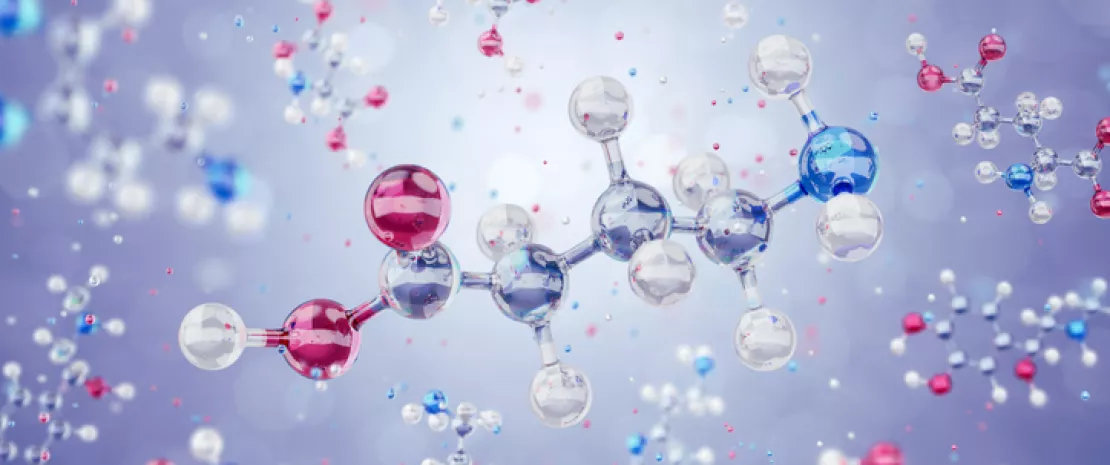Depression: more accurate diagnosis thanks to the gut microbiota?
Two recent studies have opened up new avenues for the diagnosis and treatment of depressive disorders by analyzing the composition and metabolome of the gut microbiota.
Lay public section
Find here your dedicated section
Sources
This article is based on scientific information

About this article
In recent years, many studies have examined the link between gut dysbiosis and depression, a condition that affects more than 300 million people worldwide. Two new studies have confirmed the gut microbiota’s role in the disease.
The endocannabinoid system: the link between depression and the gut microbiota
In a study carried out by the Pasteur Institute, CNRS and INSERM, naive mice received a fecal microbiota transplant (FMT) from either healthy mice or mice with depression induced by unpredictable chronic mild stress (UCMS). The researchers then analyzed the gut microbiota, the metabolism of polyunsaturated fatty acids and neurogenesis in the hippocampus (a brain region heavily involved in the development of depressive symptoms). According to the study, the symptoms of the UCMS mice (reduced hippocampal neurogenesis, mood disorders) had been transferred to the FMT mice. Metabolomic analysis of the FMT mice revealed an altered fatty acid metabolism characterized by deficits in lipid precursors of endogenous cannabinoids. This resulted in impaired activity of the brain’s endocannabinoid system, which is thought to have induced depression. Increasing endogenous cannabinoids, either via the pharmacological blockade of the enzymes that degrade them or through diet, reduced depressive symptoms in the mice that received the FMT from the UCMS mice. This increase in endogenous cannabinoids also led to a recovery in neurogenesis in the hippocampus of these mice. Lastly, a gut microbiota dysbiosis characterized by a decrease in Lactobacilli abundance was observed in both the UCMS (donor) and FMT (recipient) mice. Complementing the dietary intake of the FMT mice with a strain of Lactobacilli was sufficient to increase both endogenous cannabinoid brain levels and hippocampal neurogenesis, thus alleviating mood disorders. This work in mice provides a new mechanistic scenario for the gut microbiota’s involvement in depression via the endogenous cannabinoid system. The study also suggests that dietary interventions or the use of probiotics may be an effective means to fight against the symptoms of this disease.
Gut biomarkers: towards more accurate diagnosis?
In a second study, Chinese and American researchers identified 3 bacteriophages, 47 bacterial species and 50 metabolites whose fecal abundance differed between a first cohort of 118 patients with untreated major depressive disorder (MDD) and 118 healthy controls (HC). The analysis of a second, validation cohort (38 treated MDD patients vs. 38 HC) showed that 6 biomarkers (2 bacteria, 2 phages and 2 metabolites) made it possible to discriminate between MDD patients and healthy controls in both cohorts with an accuracy of more than 90%. Lastly, the researchers showed that levels of fecal GABA and its relevant metabolites were consistently decreased in MDD patients relative to HC. These findings suggest that fecal GABA levels in the patients with MDD may be modulated by a panel of gut microbes, which in turn may be collectively implicated in the development of MDD. These findings provide new directions to uncover the pathogenesis of MDD. They also help improve MDD diagnosis, which is currently incomplete and subject to misdiagnosis, by focusing on the gut microbiota.
Recommended by our community

"The importance of the gut microbiota" - Comment translated from buzocaperuzo (From Biocodex Microbiota Institute on X)
"Congrats on finally getting this information out.." -@GloriaR56965767 (From Biocodex Microbiota Institute on X)
"Awesome!! " -@fmoral1959 (From Biocodex Microbiota Institute on X)






